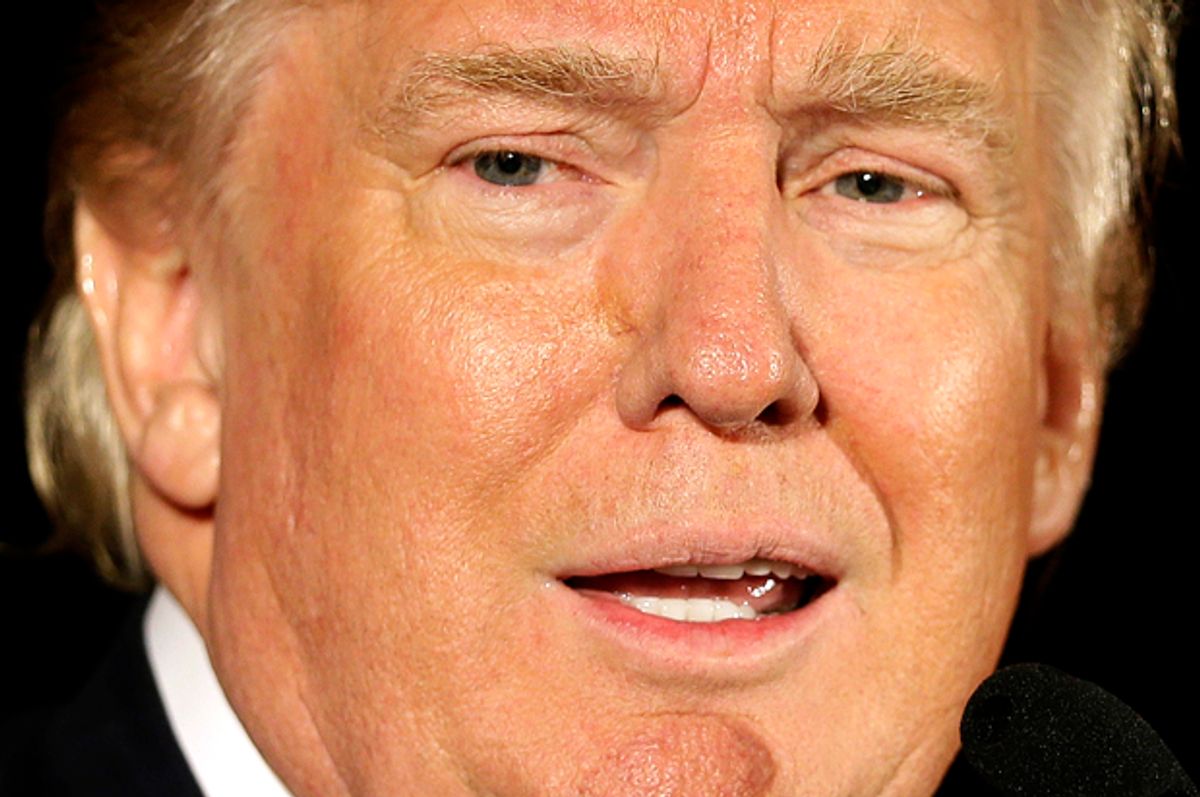The legacy of Japanese-American internment during World War II has been in the news recently, with the escalation of anti-Muslim bigotry after Paris and San Bernardino, California, focusing its lessons on the dangers of racial hysteria amid crisis.
Donald Trump’s invocation of the mass removal and incarceration of 110,000 Japanese Americans--most U.S. citizens who never faced charges of wrongdoing--as a precedent to justify banning Muslims from entering the U.S. prompted outcry, not because we expect responsible rhetoric from the source, but because his remarks disclaim a long-standing orthodoxy about internment that it was, by the U.S. government’s own admission, an outcome of “race prejudice, war hysteria, and a failure of political leadership.”
The story of internment indeed recalls Japanese Americans’ suffering against the racism of a bygone era, but it also reminds us that terrible wrongs often occur in the presence of people with misgivings, and that justice includes an honest, ongoing reckoning with the past, without which we risk repeating our mistakes.
The specter of anti-Japanese hysteria loomed over America in the years before the attack on Pearl Harbor, with Japan’s aggression in Asia and growing tension with the United States. With regard to Japanese Americans’ growing nervousness, the journalist James Omura wrote during summer 1941, “We are all under suspicion. We are all being observed…We know we have nothing to conceal, but this does not preclude the fact that people living around us may not know it.”
Hoping to stem domestic strife, the Seattle black newspaper the Northwest Enterprise urged readers about a month before Pearl Harbor to avoid “any unprovoked demonstrations against Japanese in this area because of strained relations between America and their fatherland.” Even in the days right after the attack, politicians such as California governor Culbert Olson and Los Angeles mayor Fletcher Bowron still called on people to resist acting out against their Asian friends and neighbors. The Seattle Post-Intelligencer averred, “Japanese in America are as loyal as any white Americans.”
With the announcement of plans to remove Japanese from the West Coast, the calls for calm had given way to support for or silence on the policy. U.S. officials knew of constitutional obstacles to a mass incarceration, but ultimately our leaders deferred leadership to military authorities advocating for removal. Amid the climate of anger, vigilante violence against Asian Americans (including non-Japanese) occurred, and many started wearing buttons or posting signs to disidentify from “the enemy.” A small number of dissenters criticized internment, including civil liberties, church, labor, and press organizations.
Among them was George Schuyler of the African-American newspaper the Pittsburgh Courier, who called the charge of Japanese American treachery “a fantastic falsehood…They were put in concentration camps SOLELY because of ‘race.’” Offering his community’s solidarity, he stated, “Their fight is our fight." More typical in the left were conflicted positions like that of the activist Carey McWilliams, who denounced anti-Japanese racism but accepted internment, “not because they are suspect en masse,” but “to allay popular uneasiness.”
Aside from a few acknowledgments of Japanese-Americans’ undue suffering and expressions of regret for not speaking out sooner, there was little public discussion about wartime removal and incarceration, much less calls for justice, in the years immediately afterward. Decades later, under growing pressure generated by a redress movement led by Japanese-Americans and aided by legal scholars and congressional allies, Executive Order 9066 was formally terminated in 1976, with President Ford stating that, “evacuation was wrong” due to Japanese-Americans’ loyalty and the travesty of imprisoning an innocent population. A federal commission reviewing the policy said in 1982 that, “the record does not permit the conclusion that military necessity warranted the exclusion of ethnic Japanese from the West Coast,” and survivors eventually received $20,000 payments. Perhaps the movement’s signal achievement, however, was the cementing of a national consensus on internment’s meanings--bolstered by museums, remembrances, and cultural productions--as a grave miscarriage of justice, the likes of which should never happen again.
Trump’s comments are not outliers in the right’s distortion of internment history since 9/11 as a pretense for persecuting Muslims and others who “look like the enemy.” In 2004, the conservative commentator Michelle Malkin published her book, "In Defense of Internment: The Case for Racial Profiling in World War II and the War on Terror." Roundly condemned by historians, the book relied on unsupported claims about Japanese diplomatic cables that none of the key policy makers would have had access to. Aside from being an affront to the extant scholarship, the rhetoric of Malkin, Trump and others of their ilk is a vehicle for political posturing that should trouble us all. Not only do they help foment an atmosphere encouraging people to lash out against anyone perceived as Muslim, but they also prop open the door to another massive rollback of civil liberties, the steps of which are underway (refer, for example, to the NYPD Muslim surveillance program).
History and civic identity are closely linked. We often look to the past to tell us who we are, and what are our shared stories and values. The legacy and historical interpretations of internment are windows to this quest, and the ordeal stands as a reminder of our collective failures: a time when fear trumped civil liberties, and too many were silent. Such insights should move us toward a fuller understanding of the past, provide lessons for the present anti-Muslim crisis, and insist on a rigorous, ethical engagement with history that stands up to demagogic deceptions.


Shares